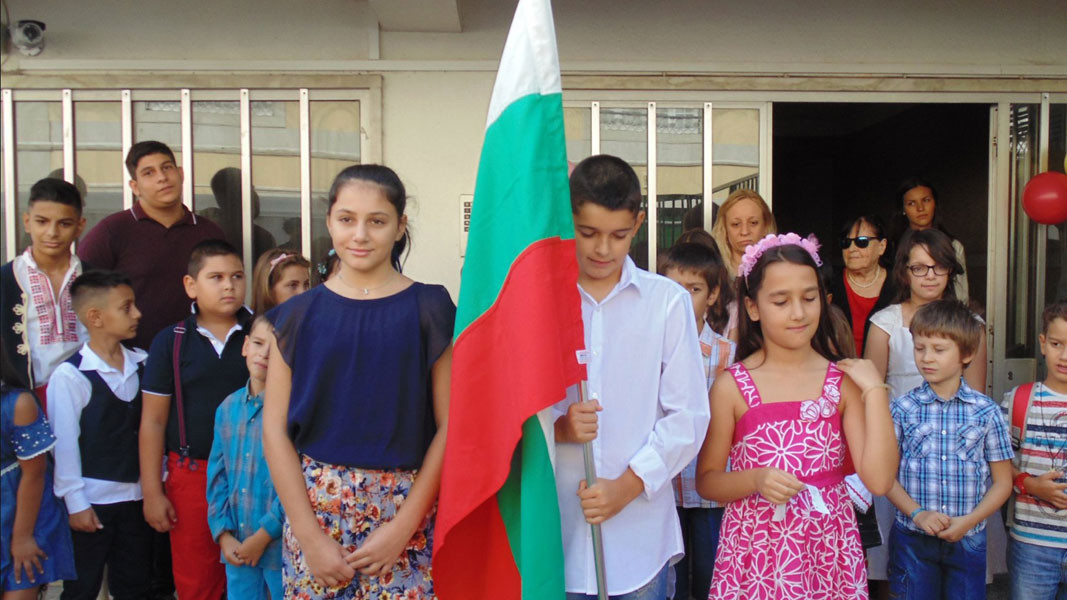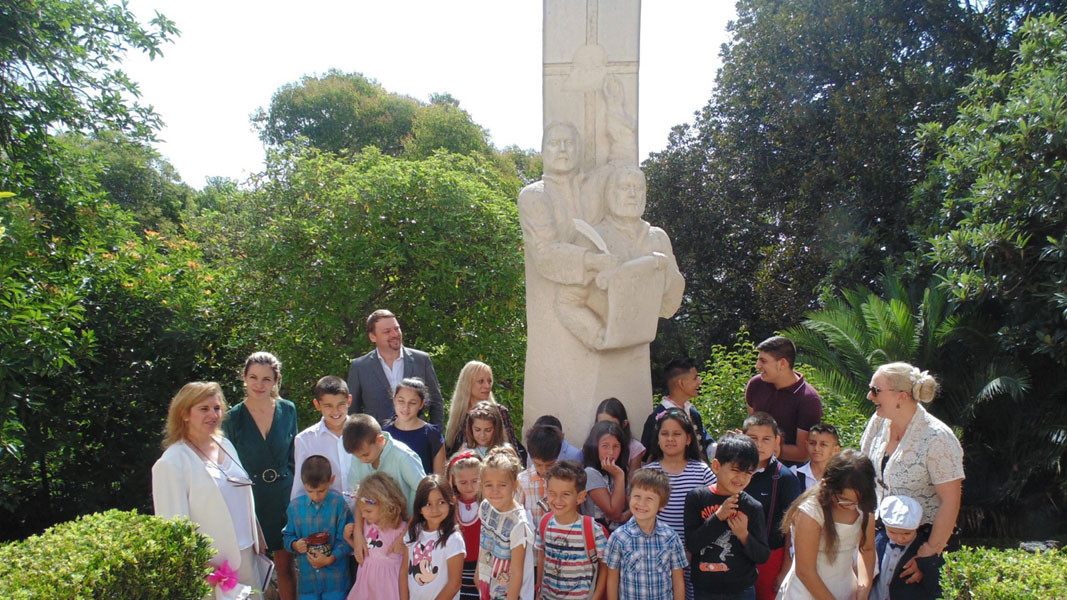To get to know your country with the first faltering words, other people’s stories, lessons, and then to try to draw it in colour. For thousands of Bulgarian children scattered around the world, the school brings something magical. Bulgarian schools around the world put together pieces of the country as in a colourful kaleidoscope, reinventing a Bulgaria of their own.
One such school is the Bulgarian weekend school in Lisbon which opened doors in 2009 to fill the educational vacuum in the Bulgarian community in Portugal.
“When I started in 2011 there were around 20 children at the school, now there are 40,” says headmistress Rumyana Davidova. “Most are from mixed marriages – Bulgarian-Portuguese – but we even have a girl who has no family connection with Bulgaria at all. Melissa from Guinea also wants to learn Bulgarian and to find out about Bulgarian culture and history because she has a friend who is Bulgarian. All children, including Melissa can write, read and speak Bulgarian well. They are all very enthusiastic, they are eager to come to the school because they learn new things here that are interesting and appealing. I am sorry we have not yet opened branches in more distant parts of Portugal but that will be our aim for the next school year because parents want their children to go to a Bulgarian school.”

The curriculum follows the programme of the Bulgarian Ministry of Education, the children are divided up into four age groups, and they have classes in Bulgarian language and literature, history and geography. But which is more important – to be able to talk, read and write in Bulgarian or to get to know Bulgaria through its history, way of life, culture?
“Both, because for the children Bulgaria is an abstract entity,” Rumyana Davidova says. “Some travel to Bulgaria once or twice a year and think of it as a country far away, a country they have only briefly come in contact with. To them everything is interesting, everything is exciting, and what is most important to me is that the children first learn Bulgarian so they can communicate with one another. Once they have learnt to read and write, they can start with Bulgarian history and geography, Bulgarian traditions and culture.”

Whatever the children are taught, it all passes through their emotions, so they may learn all about the country of their origin.
“We always start with the fact that in the Balkans, on the territory of what is today Bulgaria there once lived the Thracians – a highly developed ancient civilization,” the headmistress says. “Children also learn who founded the Bulgarian state, how Bulgarians fought battles and wars. We tell them about Tsar Simeon, what the other tsars have achieved, how Boris I received the disciples of Cyril and Methodius and how Bulgaria was the country where the Slavic script came into being. The school is named after Cyril and Methodius and there is a monument to them in the embassy garden.”

The parents of the children at the school have formed a small community and every weekend they spend several hours together. On feast days they also get together – they did at Christmas and Portuguese television came to make a film about Bulgarian traditions, they will be getting together again at Easter. Before that they will dye eggs, bake the Bulgarian Easter cake kozunak, banitsa and bread, roast lamb and share the Bulgarian Easter at a picnic near Lisbon.
English: Milena Daynova
Photos: private library
On January 25 this year, the Bulgarian National Radio will celebrate its 90th anniversary. The celebration will be accompanied by various initiatives, culminating in the ceremony of presenting the Annual Radio Journalism Awards "Sirak..
Bulgarian gardeners have been bringing the glory of Bulgaria to Croatia for more than a century and a half. They were true "ambassadors" of the humble and hardworking Bulgarian people, Diana Glasnova, author of the book Bulgarian Gardeners in..
Babinden, or Midwives' Day, was once again this year celebrated across the country with songs, dances and ritual re-enactments. The day of midwifery was marked on January 8, and today, following the old-style calendar tradition. On Babinden, people..
Deanna Haag was born in Cleveland, Ohio, USA. She grew up dreaming of adventure and new horizons. After graduating from Wittenberg College in Ohio..

+359 2 9336 661
